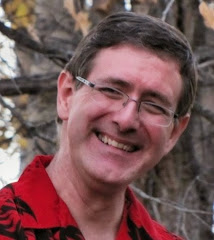Or maybe he was too nice.
When I talk about picking hymns for our upcoming new hymn resource, I
often say that a hymn that is ‘nice’ is not enough to make it into our final
cut. We have close to 2000 hymns that
have been submitted and we only have room for a tenth of that. Many of the hymns are nice but not
thought-provoking, comforting, inspiring and engaging. We can’t be nice if we’re to whittle down our
big list to something as slim as the More Voices hymnbook. We can still be kind as we let folks know
which hymns make it into our final selection.
The church leader in the parable today was not nice or
kind. Nor was he a real person. He was a
stereotype that Jesus was using. There
were Pharisees who invited Jesus to dinner, who listened to him, engaged him in
thoughtful debate, and treated him with respect. We need to remember them for it’s easy to paint
them all as bad guys. Jesus told this
story not to say Pharisees bad, tax collectors good, but to highlight two
different attitudes of prayer. The
Pharisee’s prayer was arrogant, yet he would have been nice to the tax
collector in person. Kindness does not
stem from an attitude of arrogance! The
tax collector, who would be more like today's version of a loan shark, knew how he really measured up to God’s expectation of
justice, was very humble in his attitude, and asked for help from God to become
a better person. As Paul put it in
Romans, God’s kindness is a call to us to be humble. Then once we are humble, we too can practice
real honest kindness to our community, and not its shallower cousin, niceness.
I see this principal whenever I meet folks going to AA and
Al Anon. It doesn’t matter how smart
they are, how much success they have in their professional lives, it’s the
folks who join AA and Al Anon with a humble attitude that will be successful in
rising above their addictions. The ones who
think they are better than others, or smarter, or more deserving are often the
ones who fall off the wagon. The ones
who are humble, also become very kind.
Letting go of our senses of superiority can even be seen in
the debate about what to do for the Athabasca homeless population. Some see the homeless as lazy, some see them
as manipulative opportunists, dangerous folks that should be able to fix
themselves with a little hard work and will power. Others see them as former classmates,
friends, 4h members, teenagers in high school, next door neighbors, residential
school survivors with tales of horrific trauma.
But how we help homeless people is something that society is uncertain
of. Incarcerate them? Force them to go
back to their families? We even struggle
to understand what constitutes homelessness, and lump everyone with shelter
security issues into one group. If we
are nice to homeless people, we smile and maybe say good morning, but if we are
kind to homeless people, that takes a special level of empathy, time, and
patience. It may take the shape of
talking to our politicians to strengthen existing mental health supports and
building community infrastructure to house people in the community they grew up
in. I’m inspired by the James Smith Cree
Nation and their call to increase the number of drug treatment facilities and
beds for indigenous communities. That’s
kindness in action. Or kindness might take shape in the form of intervention
programs targeting even younger people.
Programs like the Human Kindness Project, a curriculum developed
in Toronto for elementary and junior high students which combats bullying. Winnipeg police developed their “Cool 2Be
Kind” project to also build empathy. In
Newfoundland, a volunteer organization, the “Kindness Project”, handed out
valentine cards to strangers just as we did during Covid in 2020. My friend Di who lives in Australia and was
impacted by the flood last week, was amazed at the kind offers of support and
help she received. Kindness is even seen as the way to break the spiral of
divisiveness and polarization we seem to be sliding into in Alberta and around
the world.
Jesus taught his followers that God’s kindness is deep and
unending, like a huge watermelon where there is always another slice to be
shared. God is not nice, God is kind,
and God’s justice is more than just being nice.
When we humbly recognize that we don’t have all the answers, that we’re
not perfect, then God’s kindness will envelop us, grow in us and bear fruit in
us. The fruit of the spirit, kindness,
can heal and inspire us all. Thanks be
to God!





